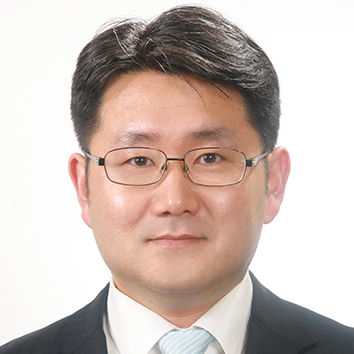On May 27, 2024, the 9th ROK-Japan-China Trilateral Summit was held in Seoul. The South Korean government expressed its expectations for the summit, hoping it could lead to diplomatic achievements for the Yoon Suk-yeol administration, the restoration of the ROK-China relations, and the reduction of geopolitical tensions in Northeast Asia. However, the outcome of the summit fell short of the South Korean government’s expectations. This is due to disagreements on diplomatic and security issues, such as North Korea’s denuclearization, and failure to propose specific cooperation projects, exposing the structural limitations of trilateral cooperation in the context of the U.S.-China strategic competition, despite the three countries confirming their willingness to cooperate at the summit.
1. China’s Intentions at the 9th ROK-Japan-China Trilateral Summit
1) Seeking to Relax U.S. Alliances in the Region, Emphasizing Regional Cooperation
There are concerns in South Korea and Japan that the next U.S. administration could prioritize U.S. national interests and adopt protectionist policies. In this context, China’s emphasis on economic and regional cooperation among the three countries seems to be a way to build a consensus against U.S. protectionism and to establish a foundation for jointly responding to it through economic cooperation. At the same time, this strategy is intended to prevent security cooperation between South Korea, the U.S., and Japan from becoming a counterbalance to China by encouraging South Korea and Japan not to completely sever ties with China, even if they strengthen their ties with the U.S.
2) Maintaining Favorable Relations with North Korea While Distancing Itself from a DPRK-China- Russia Triangular Axis
The summit clearly revealed the differences between the three countries’ positions on North Korean denuclearization. Unlike South Korean President Yoon and Japanese Prime Minister Kishida, Chinese Premier Li Qiang did not mention “North Korean denuclearization” during the press conference. This shows that China still values and intends to maintain favorable relations with North Korea while simultaneously seeking cooperation with South Korea and Japan. At the same time, by emphasizing trilateral cooperation with democracies, South Korea and Japan, China is likely attempting to ease concerns about the triangular axis between North Korea, China, and Russia. Demonstrating that there is no “ROK-U.S.-Japan vs. DPRK-China-Russia” structure in Northeast Asia could undermine the legitimacy of the U.S.-led security cooperation between South Korea, the U.S., and Japan.
3) Limiting Taiwan’s Cooperation with Countries in the Region
In its press releases about bilateral meetings, China clearly communicated its position on Taiwan to South Korea and Japan, specifically noting that President Yoon Suk Yeol stated South Korea upholds the One China principle. This can be interpreted as a message to both China and Taiwan: highlighting the Xi Jinping administration’s diplomatic success in advocating for reunification with Taiwan, while also proactively trying to limit the Lai Ching-te government’s efforts to strengthen cooperation with South Korea and Japan.
2. Japan’s Calculations at the 9th ROK-Japan-China Trilateral Summit
1) Changing the Existing ‘South Korea-China vs. Japan’ Structure to the ‘South Korea-Japan vs. China’ Structure
The Trilateral Summit is not an event that Japan can approach lightly, as the historical issues that inevitably arise in relations with South Korea and China have always been uncomfortable for Japan. As a result, a ‘South Korea-China vs. Japan’ structure has characterized previous summits. However, at the 9th ROK-Japan-China Summit, Japan, unlike China, tried to fully support the leading role and efforts of the host country, South Korea. As a result, a ‘South Korea-Japan vs. China’ structure became evident.
2) Imprinting the Solid ROK-U.S.-Japan Cooperation Compared to Relatively Limited ROK-Japan-China Cooperation
The summit clearly affirmed the unified position of South Korea and Japan on the North Korean issue. In addition, at the ROK-US-Japan Defense Minister meeting on June 2, the three countries expressed concern over North Korea’s launch of a military reconnaissance satellite and called for a strong and decisive response from the international community. Although China has sought to create cracks in ROK-US-Japan security cooperation, the recent North Korean threats paradoxically reaffirmed the legitimacy of this trilateral security cooperation. As a result, the ROK-Japan-China cooperation at the summit revealed its limitations in comparison to the solid ROK-US-Japan security cooperation, which addresses the North Korea issue, the most sensitive topic in the region.
3) Reaffirming Japan’s Expanding Role in Global Challenges
In his remarks at the ROK-Japan-China Trilateral Summit, Prime Minister Kishida expressed Japan’s views on regional and international affairs, emphasizing the importance of trilateral cooperation. Kishida’s remarks echoed the ‘U.S.-Japan Global Partnership’ defined at the U.S.-Japan Summit in April. Given the constraints of the Peace Constitution and the difficulty of using force, Japan’s actual security role may be limited. However, its continued statements on global issues, even those not directly relevant to Japan, can be interpreted as a reaffirmation of Japan’s possible involvement and expanding role in various global issues in the future.
4) Attempting to Shift the ROK-Japan Relations to One That Is Beyond Historical Conflicts
At the Korea-Japan bilateral Summit, the two countries discussed various bilateral cooperation initiatives and agreed to prepare projects to boost bilateral relations in celebration of the 60th anniversary of the normalization of diplomatic relations in 2025. This can be seen as an effort to transform the existing bilateral relations between South Korea and Japan, which have been mired in historical conflicts, into one that focuses on cooperation even amid ongoing disputes. However, such an approach is difficult to gain the sympathy of most Koreans, as it is often perceived as evasion, downplaying, or forgetting of historical issues.
3. Policy Considerations
As the three countries have different intentions and calculations based on their own national interests, the framework of the Trilateral Summit doesn’t seem substantial. The South Korean government should consider the following to compensate for this vulnerability.
First, the South Korean government should use the ROK-Japan-China summit to expand and regularize high-level diplomatic communication channels with China. This would establish the groundwork for the two countries to share their perceptions and policies on various issues and manage bilateral relations without unnecessary misunderstandings and conflicts.
Second, the South Korean government should promote the achievements of cooperation in various fields and convey the message of restoring bilateral relations with China to its neighbors. This will positively impact the people’s mutual feelings and regional stability by raising expectations for South Korea-China cooperation in the face of North Korea’s military provocations and escalating military tensions in the Taiwan Strait. Such efforts will also help increase South Korea’s value in the ROK-U.S. alliance by highlighting its role in regional stability through dialogues and cooperation with China.
Third, the South Korean government should leverage its improving relationship with China to address the North Korean nuclear issue. North Korea may perceive the strengthening trilateral cooperation between South Korea, Japan, and China as a threat to its external influence and might continue to criticize China, South Korea, and Japan. Although it is unlikely that China will change its stance on the North Korean nuclear issue in the short term, North Korea’s backlash and accusations could increase the political burden on China. Therefore, South Korea should consistently communicate to China that North Korea’s military provocations and further nuclear tests will heighten regional instability and severely damage economic cooperation in the region. By doing so, South Korea can exploit cracks in North Korea-China relations and encourage China to take a more active role in addressing the North Korean nuclear issue.
Fourth, the South Korean government should maintain the momentum of trilateral cooperation between South Korea, Japan, and China while avoiding the creation of a confrontational structure like ‘South Korea-China vs. Japan’ or ‘South Korea-Japan vs. China.’ South Korea-Japan relations are fraught with instability due to historical issues. Unstable relations between South Korea and Japan can adversely affect trilateral cooperation with China, as well as security cooperation between South Korea, the U.S., and Japan. Therefore, South Korea should seek a cooperation framework with Japan and China that does not rely solely on bilateral relations. The South Korean government should emphasize the importance and necessity of trilateral cooperation to achieve tangible benefits.
Fifth, the South Korean government should prepare for the 60th anniversary of the normalization of diplomatic relations with Japan in 2025, with the principle that future-oriented bilateral relations must be built on historical honesty. Emphasizing bilateral cooperation without addressing historical issues will struggle to gain public support. While it is important to avoid focusing solely on historical issues, which could halt cooperation in other areas, it is also necessary to avoid ignoring or forgetting these issues. The year 2025 should be designated as the “Year of Re-Takeoff of South Korea-Japan Relations,” promoting bilateral cooperation in various fields. At the same time, there should be initiatives for memorialization and reconciliation to help heal historical wounds.
The ROK-Japan-China Trilateral Summit has often been undermined by worsening bilateral relations. The three countries should capitalize on the renewed momentum of trilateral cooperation to regularize the summit, design practical action plans to maximize cooperation outcomes and develop the trilateral framework to reduce regional confrontations and conflicts.
This article is an English Summary of Asan Issue Brief (2024-17).
(‘제9차 한-일-중 정상회의를 통해 본 3국의 동상이몽’, https://www.asaninst.org/?p=94312)

 Facebook
Facebook Twitter
Twitter
